
Ferrara is a city and comune (municipality) in Emilia-Romagna, Northern Italy, capital of the province of Ferrara. As of 2016, it had 132,009 inhabitants. It is situated 44 kilometres northeast of Bologna, on the Po di Volano, a branch channel of the main stream of the Po River, located 5 km north. The town has broad streets and numerous palaces dating from the Renaissance, when it hosted the court of the House of Este. For its beauty and cultural importance, it has been designated by UNESCO as a World Heritage Site.
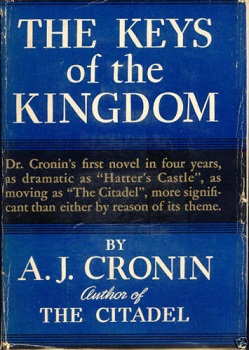
The Keys of the Kingdom is a 1941 novel by A. J. Cronin. Spanning six decades, it tells the story of Father Francis Chisholm, an unconventional Scottish Catholic priest who struggles to establish a mission in China. Beset by tragedy in his youth, as a missionary Chisholm endures many years of hardship, punctuated by famine, plague and war in the Chinese province to which he is assigned. Through a life guided by compassion and tolerance, Chisholm earns the respect of the Chinese—and of fellow clergy who would mistrust him—with his kindly, high-minded and courageous ways.
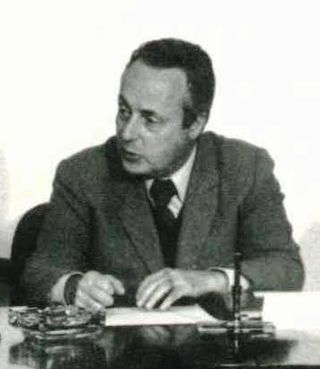
Giorgio Bassani was an Italian novelist, poet, essayist, editor, and international intellectual.

The Abravanel family, also spelled as Abarbanel, Abrabanel, Avravanel, Barbernell, or Barbanel – literally meaning Ab ("father") rabban ("priest") el – is one of the oldest and most distinguished Jewish families. It first achieved prominence on the Iberian peninsula during the Middle Ages. Its members claim to trace their origin to the biblical King David. Members of this family lived in Seville, Córdoba, Castile-Leon, and Calatayud. Seville is where its most prominent representative, Don Judah Abravanel, once dwelt.

Carlo Levi was an Italian painter, writer, activist, independent leftist politician, and doctor.
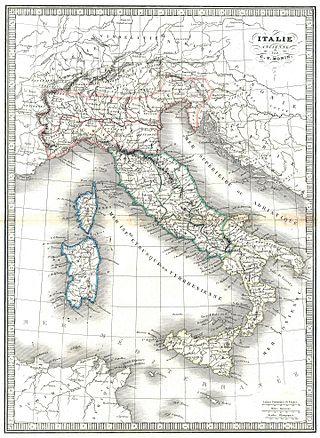
The history of the Jews in Italy spans more than two thousand years to the present. The Jewish presence in Italy dates to the pre-Christian Roman period and has continued, despite periods of extreme persecution and expulsions, until the present. As of 2019, the estimated core Jewish population in Italy numbers around 45,000.

Philippe Noiret was a French film actor.

Claudio Treves was an Italian politician and journalist.

Italians in Egypt, also referred to as Italian Egyptians, are Egyptian-born citizens who are fully or partially of Italian descent, whose ancestors were Italians who emigrated to Egypt during the Italian diaspora, or Italian-born people in Egypt. This Italian community have a history that goes back to Roman times.
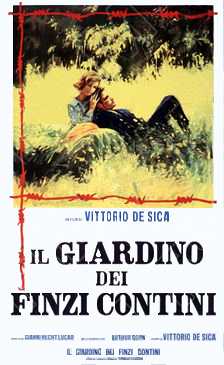
The Garden of the Finzi-Continis is a 1970 Italian historical drama war film directed by Vittorio De Sica. The screenplay by Ugo Pirro and Vittorio Bonicelli adapts Italian Jewish author Giorgio Bassani's 1962 semi-autobiographical novel of the same name, about the lives of an upper-class Jewish family in Ferrara during the Fascist era. The film stars Lino Capolicchio, Dominique Sanda, Helmut Berger, Romolo Valli, and Fabio Testi in his breakthrough role.

The Family is a 1987 Italian drama film directed by Ettore Scola and starring Vittorio Gassman, Fanny Ardant, Philippe Noiret, and Stefania Sandrelli. It was entered into the 1987 Cannes Film Festival. The film received an Academy Award nomination for Best Foreign Language Film at the 60th Academy Awards.

El Internado, also known as El Internado: Laguna Negra is a Spanish teen drama thriller television series produced by Globomedia for the Spanish network Antena 3. The series was originally broadcast in Spain from 24 May 2007 to 13 October 2010. The series began airing on Netflix on 15 July 2015, and it stopped airing on 20 December 2017. Then, the series was reaired on 16 October 2018.

Il bell'Antonio is a 1960 Italian-French drama film directed by Mauro Bolognini and starring Marcello Mastroianni and Claudia Cardinale. It is based on the novel of the same name by Vitaliano Brancati and was adapted for the screen by Pier Paolo Pasolini and Gino Visentini, moving the novel's setting during Italy's fascist era to the present.
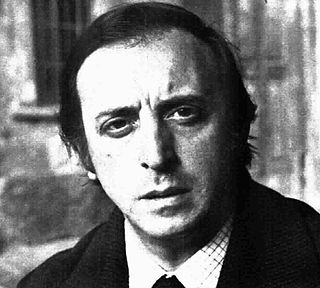
Felice Andreasi was an Italian film, television, and stage actor. He appeared in over 50 films in Italy between 1972 and 2005.

MOSCOT is a five-generation, family-owned, American luxury eyewear brand, headquartered in New York City, specializing in optical frames and sunglasses. It was founded in the Lower East Side neighborhood of Manhattan in 1915 by Hyman Moscot, which is one of the oldest local businesses in New York City, as well as the 21st oldest eyewear company in the world still operating today.

Michele Marziani is an Italian novelist and journalist.
Roberto Melli (1885–1958) was an Italian painter and sculptor to the Scuola Romana, and active in Ferrara and Rome.

Meganebu! is a 2013 anime television series produced by Studio Deen and directed by Soubi Yamamoto, which is based on a series of Drama CDs released by Deen in 2011-2012. The series follows the activities of five male students who belong to their school's Glasses Club and the antics resulting from their shared passion for eyewear. The series premiered on Tokyo MX on October 6 and ended on December 22, 2013.

Renzo Ravenna was an Italian lawyer and politician. He belonged to a prominent Jewish family in Ferrara and was, with Enrico Paolo Salem in Trieste, one of only two Fascist mayors of Jewish origin in Italy before the introduction of the racial laws.

















